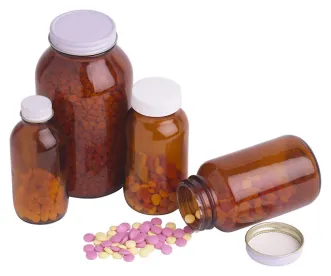The ink wasn’t even dry on our last post (Filthy Pharma) when the front page of the New York Times carried this headline, “New York Attorney General Targets Supplements at Major Retailers.” According to cease and desist orders from New York Attorney General Eric Schneiderman, GNC, Walgreens, Target and WalMart have been told to stop selling several popular supplements because they are adulterated and even dangerous.
New York claims that 80% of the supplements tested did not contain any of the herbs listed on their labels. Often they were nothing more than cheap fillers. Some contained ground up houseplants while others were potentially dangerous.
The state found that Walgreens’ ginseng pills contained cheap rice and garlic. WalMart’s ginkgo biloba supplement was filled with radish, houseplants and wheat (even though it was advertised as wheat free.) Most samples of GNC’s saw palmetto had no saw palmetto and one supplement had no DNA whatsoever suggesting inert fillers. Saw palmetto is widely used as a preventative for certain types of cancer.
The supplement industry has long been unregulated and lacks testing. Unfortunately, even though the pharmaceutical industry is highly regulated it often suffers from the same problems of misbranding, adulteration and lack of testing.
With more pharmaceuticals being manufactured in Mexico, India and China, we expect the problems of adulterated drugs to get worse. Big pharma has been increasing the amounts of drugs being outsourced to developing countries as a way of increasing profits.
India has long suffered an epidemic of adulterated drugs manufactured and sold internally. One report suggested that half of all drugs sold in India are misbranded, contain none of the listed ingredients or are adulterated. Unfortunately, these same manufacturers are now making drugs for the U.S. markets.
Over the last decade only two major whistleblower cases have been filed under the federal False Claims Act relating to bad drug manufacturing practices. That law allows people with inside information about fraud – chemists, managers and quality control personnel – to file a lawsuit in the name of the United States and collect a reward.
To qualify for an award, a whistleblower must have “original source” knowledge of fraud involving a federally funded program. Medicare and Medicaid pay for much of the drugs sold in the United States and both are funded with tax dollars. That means misbranded supplements probably don’t qualify for an award but adulterated pharmaceutical drugs do.
How much can a whistleblower earn from a false claims act case? Millions. The law allows whistleblowers to collect up to 30% of whatever is recovered by the federal government. (The average award is between 15% and 20%.) Because the law permits triple damages and since the prescription drug market in the U.S. is a $300 billion industry, the awards can be huge. Some whistleblowers have earned more than $50,000,000.00.
Whistleblowers do not have to be U.S. citizens but there must be a link between bad drugs and a company selling those drugs through Medicare, Medicaid or to U.S. employees or veterans.
Many of the current problems with adulterated drugs can be traced to cGMP violations – “current good manufacturing practices.” A recent cGMP court case suggests that bad manufacturing practices alone are not enough to earn an award. If the findings of New York State are any indication, however, the drugs themselves are bad and that is a violation.
Patients and taxpayers spend hundreds of billions of dollars annually in an effort to stay healthy and recover from life threatening diseases. Some big pharmas are gouging patients with cancer treatments that cost $100,000! Yet to save a few pennies, these same companies may be selling drugs that are nothing more than snake oil.
Pharmaceutical whistleblowers save lives.




 />i
/>i
